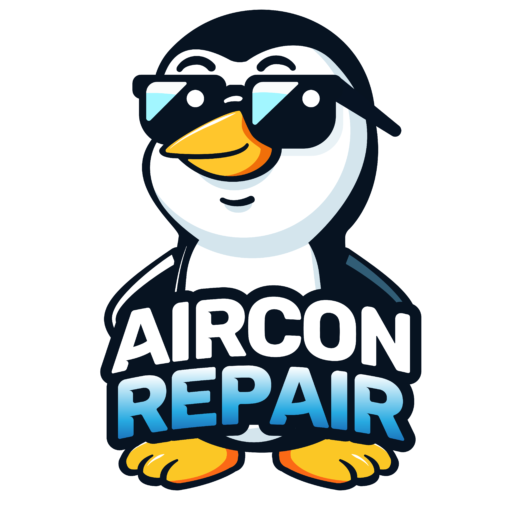Your air conditioner works hard to keep your home cool, but without regular maintenance, it can lose efficiency, break down, or lead to costly repairs. Knowing the best time for AC maintenance ensures optimal performance, lower energy bills, and a longer lifespan for your unit.
But when is the ideal time to schedule AC servicing? Should you wait until summer, or is it better to prepare in advance? In this guide, we’ll explore the perfect timing for air conditioner maintenance, the benefits of seasonal tune-ups, and key maintenance tasks to keep your system running smoothly.
By planning ahead, you can prevent breakdowns, improve efficiency, and stay comfortable year-round. Let’s dive into the best times to maintain your AC system.
Optimal Timing for Air Conditioner Maintenance
1. Pre-Season Maintenance: Preparing Before Peak Usage
Scheduling maintenance before the peak cooling season is crucial. For regions with hot summers, such as Florida, spring is the ideal time for a comprehensive system check. This proactive approach ensures that the air conditioner operates efficiently during the demanding summer months. Additionally, servicing the unit before peak season increases the likelihood of securing timely appointments with HVAC professionals.
2. Recognizing Warning Signs: When Immediate Attention Is Needed
Being attentive to your air conditioner’s performance can prevent minor issues from escalating into major problems. Key indicators that maintenance is required include:
- Unusual Noises: Sounds like banging, rattling, or squealing may indicate mechanical issues that need prompt attention.
- Reduced Cooling Efficiency: If the system struggles to maintain the desired temperature, it may require servicing to restore optimal performance.
- Increased Energy Bills: A sudden rise in energy costs without a corresponding increase in usage often points to system inefficiency.
- Strange Odors: Musty or burnt smells can be signs of mold growth or electrical problems within the unit.
Addressing these warning signs promptly can prevent costly repairs and ensure uninterrupted comfort.
3. Seasonal Transitions: Ensuring Year-Round Efficiency
Transition periods, such as spring and fall, are ideal times to schedule maintenance. During these times, HVAC systems often switch between heating and cooling modes. Regular check-ups during these seasons ensure that the system operates efficiently throughout the year, regardless of temperature fluctuations.
4. Post-Severe Weather Inspections: Assessing Potential Damage
In areas prone to severe weather events, such as hurricanes or tropical storms, it’s essential to inspect the outdoor unit after such occurrences. Look for debris, bent fins, or any visible damage. Even if the system appears to be functioning normally, scheduling a professional inspection can identify hidden issues and prevent future malfunctions.
5. Annual Preventive Maintenance: A Proactive Approach
Regardless of apparent system performance, an annual tune-up is vital. Regular maintenance tasks include cleaning components, checking refrigerant levels, and calibrating the thermostat. Preventive care not only extends the lifespan of the air conditioner but also ensures energy efficiency, leading to cost savings over time.
Benefits of Regular Air Conditioner Maintenance
Consistent maintenance offers several advantages:
- Enhanced Energy Efficiency: A well-maintained system uses less energy, reducing utility bills.
- Improved Air Quality: Regular cleaning prevents the buildup of dust and allergens, promoting a healthier indoor environment.
- Extended System Lifespan: Addressing minor issues before they escalate ensures the system remains operational for its intended lifespan.
- Cost Savings: Preventive maintenance reduces the likelihood of expensive repairs and system replacements.
Selecting a Qualified HVAC Professional
Choosing the right HVAC professional is crucial for effective maintenance. Consider the following when selecting a service provider:
- Certifications and Licenses: Ensure the technician holds relevant certifications and licenses, indicating proper training and adherence to industry standards.
- Experience: An experienced technician is more likely to identify and address potential issues efficiently.
- Reputation: Look for reviews or ask for references to gauge the quality of service provided.
- Service Guarantees: A reputable professional often offers service guarantees, providing peace of mind regarding the quality of work performed.
DIY Maintenance Tips for Homeowners
While professional maintenance is essential, homeowners can also perform simple tasks to keep their systems running smoothly:
- Regularly Replace Air Filters: Dirty filters restrict airflow, reducing efficiency. Check and replace filters every 1-3 months.
- Keep Outdoor Units Clean: Ensure the area around the outdoor unit is free from debris, leaves, and overgrown vegetation to maintain proper airflow.
- Monitor Thermostat Settings: Use programmable thermostats to optimize cooling schedules and reduce energy consumption.
- Inspect Ductwork: Periodically check for leaks or obstructions in the ductwork, ensuring efficient airflow throughout the home.
Conclusion
Regular air conditioner maintenance is essential for ensuring efficiency, preventing breakdowns, and extending the lifespan of your system. By scheduling tune-ups before peak seasons, addressing warning signs early, and performing simple DIY upkeep, you can keep your AC running smoothly year-round. Investing in professional maintenance not only enhances energy efficiency and air quality but also saves you money on costly repairs. Whether you’re preparing for summer or recovering from severe weather, staying proactive with AC care ensures uninterrupted comfort. Don’t wait for issues to arise—schedule your next maintenance appointment with a qualified HVAC professional today to keep your system in top shape.
